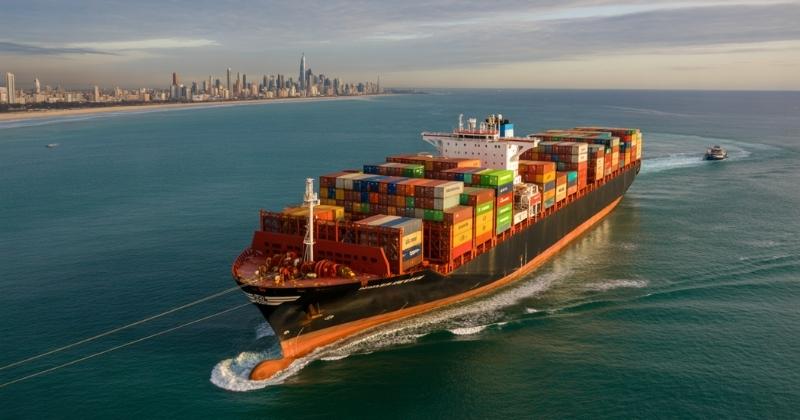
After a quarter of a century, the African Growth and Opportunity Act (AGOA) officially came to an end last week, marking the conclusion of one of South Africa’s most valuable trade arrangements with the United States. The Act, first signed into law in May 2000, provided a duty-free gateway for approximately 17% of South Africa’s exports to enter the American market, significantly shaping the country’s industrial and export landscape over the past 25 years.
Key Takeaways
- AGOA’s expiry reshapes South Africa’s trade landscape: The end of the 25-year-old agreement removes duty-free access to the US for nearly a fifth of South African exports, putting industries like automotive, agriculture, and chemicals at risk.
- Strategic pivot needed for long-term resilience: South Africa must quickly diversify into new markets such as China, India, and the EU, while improving domestic logistics, infrastructure, and policy reforms to stay competitive.
- Geopolitical realignment is underway: The lapse of AGOA accelerates Africa’s tilt toward China and BRICS, signalling a long-term transformation in global trade relations that could redefine Africa’s economic alliances for decades.
About Arcadia Finance
Find your ideal loan through Arcadia Finance. We connect you with 19 verified lenders at no cost, all approved by South Africa’s National Credit Regulator. Enjoy a fast, simple process designed to match your needs responsibly.
A Cornerstone of South Africa’s Export Economy
Throughout its duration, AGOA proved instrumental to the growth and global integration of several key South African sectors. The vehicle manufacturing industry, in particular, flourished under the agreement, alongside strong gains in agriculture, apparel, chemical production, and equipment exports. According to figures released by Aluma Capital, South Africa’s economic advantages derived from AGOA have expanded steadily over the years, with 2024 recording the highest value yet.
In 2024, South Africa exported goods valued at approximately R71.5 billion under AGOA, representing 46% of all exports destined for the United States that year. This marked a dramatic increase compared with previous years—up from R31 billion in 2019, R54 billion in 2022, and R64 billion in 2023. Cumulatively, nearly R300 billion worth of goods moved under the programme throughout its lifetime, confirming South Africa’s dominant role as the largest single beneficiary of the trade scheme.
Trivia: The automotive industry alone contributed more than half of South Africa’s AGOA exports, with brands like BMW, Ford, and Mercedes-Benz relying heavily on the deal to maintain their US-market competitiveness.

Economic Gains and Job Creation at Risk
Over its 25-year span, South Africa accounted for about 54% of all AGOA-related exports from Africa to the United States. The Act not only boosted export revenues but also stimulated job creation and entrepreneurial growth across several industries. However, with the agreement’s expiry, thousands of these jobs and business opportunities are now under threat. Economists warn that, unless South Africa rapidly diversifies its markets and strengthens alternative trade partnerships, the economic fallout could be severe.
The Trump Tariffs and Their Complications
Some analysts contend that the so-called “Trump tariffs” introduced in 2025 effectively nullified the benefits of AGOA by imposing new export duties on certain goods. Yet, others argue that this interpretation oversimplifies the situation. These tariffs are not necessarily permanent; many are subject to renegotiation and are currently facing legal challenges in the United States. AGOA, by contrast, was a long-term structural agreement that offered stability beyond the lifespan of any single administration.
Uncertainty Amid Political Deadlock
Reports have indicated that the Trump administration had considered extending AGOA by another year. However, with the U.S. government now in a state of shutdown, the proposal remains unaddressed. Even if discussions resume, there is no certainty that South Africa would still qualify for inclusion. Business Leadership South Africa (BLSA) chief executive Busisiwe Mavuso has noted that South Africa’s perceived closeness to China and Russia has strained its diplomatic relations with Washington, making its participation in any renewed version of AGOA increasingly uncertain.
Tip: South Africa’s foreign policy analysts recommend taking a neutral stance in global power disputes to maintain eligibility for future trade deals with Western partners.
A Lose-Lose Scenario for Both Nations
Mavuso has emphasised that the termination of AGOA is not solely detrimental to South Africa. The United States also stands to lose access to crucial supply chain partnerships and resource flows. Many American firms are deeply integrated with South African manufacturers, and the end of AGOA could disrupt established trade networks, resulting in job losses and reduced efficiency on both sides.

The Urgent Need for Strategic Realignment
Despite the potential for renewed negotiations, South Africa’s leadership is being urged to prepare for a future beyond AGOA. The consensus among business leaders is that while pursuing continued dialogue with the United States remains worthwhile, the country must simultaneously seek to expand its trade footprint elsewhere. This includes strengthening ties with emerging markets and leveraging existing frameworks such as the African Continental Free Trade Agreement (AfCFTA) and BRICS partnerships.
Mavuso has highlighted China’s growing appeal as a trading partner, pointing to Beijing’s recent policy of granting duty-free access to all African nations maintaining diplomatic relations with it. This, she argues, represents a major shift in global trade alignments, one that could reshape Africa’s economic orientation for decades to come.
Tip: South African businesses should actively pursue Chinese e-commerce platforms like Alibaba and JD.com to unlock access to vast consumer bases for manufactured and agricultural goods.
Focusing on Domestic Reforms and Competitiveness
While diversification is critical, Mavuso has also stressed the importance of internal reforms to boost South Africa’s competitiveness on the world stage. Improvements in logistics, including port efficiency and freight rail operations, have shown some progress but must be accelerated to meet global standards. Enhancing infrastructure and regulatory alignment could significantly improve South Africa’s export performance and attract new investment.
Conclusion
The end of AGOA marks not just the expiration of a trade deal but a defining moment in South Africa’s economic trajectory. While it represents a serious challenge for export-driven industries and thousands of workers, it also opens the door for a strategic reset—one that demands innovation, self-reliance, and diversification. South Africa now faces a choice: to mourn the loss of a 25-year partnership or to seize the moment to reimagine its trade future, deepen ties with emerging markets, and reform from within. With the right vision and urgency, this setback could yet become a catalyst for renewed economic independence and global competitiveness.
Fast, uncomplicated, and trustworthy loan comparisons
At Arcadia Finance, you can compare loan offers from multiple lenders with no obligation and free of charge. Get a clear overview of your options and choose the best deal for you.
Fill out our form today to easily compare interest rates from 19 banks and find the right loan for you.

